HomeActivities/Honda Prize Honda Prize Laureates

* Information concerning affiliation/post/profile of the laureate is current at the time he/she received the prize.
2023 |
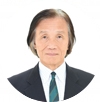
|
-
Dr. Masato Sagawa
(Japan)
Adviser, Daido Steel Co., Ltd. President, NDFEB Corporation
-
Awarded for their independent inventions of “neodymium(Nd-Fe-B) magnet” recognized as the strongest on Earth, which significantly supports our daily lives.
|
2023 |
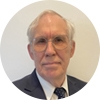
|
-
Dr. John J. Croat
(U.S.A)
Former President, John Croat Consulting Inc.
-
Awarded for their independent inventions of “neodymium(Nd-Fe-B) magnet” recognized as the strongest on Earth, which significantly supports our daily lives.
|
2022 |
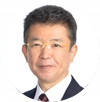
|
-
Dr. Hidetoshi Katori
(Japan)
Professor, Department of Applied Physics Graduate School of Engineering The University of Tokyo, Chief Scientist Quantum Metrology Laboratory/Team Leader Space-Time Engineering Research Team RIKEN Center for Advanced Photonics (RAP)RIKEN, Program Manager
-
Awarded for his Invention of the “optical lattice clock” which is 1,000 times more accurate than conventional atomic clocks and deviates only one second in 30 billion years.
|
2021 |
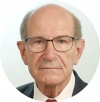
|
-
Dr. Alim Louis Benabid
(France)
Professor Emeritus of Joseph Fourier University and Chairman of the Board of Clinatec, Edmond J. Safra Biomedical Research Center
-
Awarded for for his contribution to pioneering research and practical application of deep brain stimulation (DBS) to the treatment of involuntary movement caused by progressive Parkinson’s disease.
|
2020 |
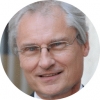
|
-
Dr. Henning Kagermann
(Germany)
Chair of the Board of Trustees, National Academy of Science and Engineering
-
Awarded for pioneering the principles of Fourth Industrial Revolution (Industrie 4.0) and made a significant impact on the world.
|
2019 |

|
-
Dr. Geoffrey E. Hinton
(U.K./Canada)
Professor Emeritus, the University of Toronto and Chief Scientific Adviser, Vector Institute
-
Awarded for his pioneering research in the field of deep learning in artificial intelligence (AI) and his contribution to practical application of the technology.
|
2018 |
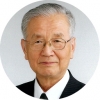
|
-
Dr. Fujio Masuoka
(Japan)
Professor Emeritus, Tohoku University
-
Awarded for his invention of the “flash memory” non-volatile semiconductor memory
|
2017 |
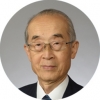
|
-
Dr. Hiroyuki Matsunami
(Japan)
Professor Emeritus, Kyoto University
-
Awarded for his outstanding contributions to pioneering research on "silicon carbide (SiC) power devices" and its practical applications.
|
2016 |
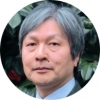
|
-
Dr. Akira Isogai
(Japan)
Professor, Department of Biomaterials Science, Graduate School of Agricultural and Life Sciences, The University of Tokyo
-
Awarded for their outstanding contributions to the development of high-efficiency production methods of Cellulose Nanofiber (CNF), its application to products, and the enhancement of its potential for further utilization.
|
2016 |
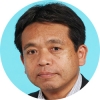
|
-
Dr. Hiroyuki Yano
(Japan)
Professor of the Research Institute for Sustainable Humanosphere at Kyoto University
-
Awarded for their outstanding contributions to the development of high-efficiency production methods of Cellulose Nanofiber (CNF), its application to products, and the enhancement of its potential for further utilization.
|
2015 |
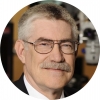
|
-
Dr. Russell H. Taylor
(U.S.A.)
John C. Malone Professor at Johns Hopkins University, U.S.A.
-
Awarded for his contributions in the development of surgical medical robots and systems and technological evolution in the field. He is one of the pioneers who established the field of robot research in the 1970’s and has become widely known as the “father of medical robotics.”
|
2014 |

|
-
Dr. Helmut Clemens
(Austria)
Head of the Department of Physical Metallurgy and Materials Testing at the Montanuniversität Leoben, Austria
-
Awarded for his outstanding contributions and eminent achievements in the development of light-weight structural intermetallic titanium aluminides, so-called ɤ-TiAl based alloys which are presently seen as key structural materials for high-temperature application in advanced jet and automotive engines of the next generation.
|
2013 |
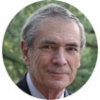
|
-
Dr. J. Tinsley Oden
(U.S.A.)
Director of the Institute for Computational Engineering and Sciences (ICES) at The University of Texas at Austin
-
Awarded for his contribution to establishment and development of “Computational Mechanics,” a new discipline that integrates mathematics, computer science, physics and applied mathematics, which has enabled the development of computer simulation technology used across industry and research today.
|
2012 |
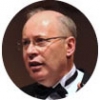
|
-
Dr. Denis Le Bihan
(France)
Director of NeuroSpin, CEA Saclay, France
-
Awarded for his pioneering efforts in theorization of water diffusion measurement by MRI and its application in clinical practice. Spared many patients suffering acute stroke and other neurological disorders, the techniques have rapidly spread throughout the world.
|
2011 |
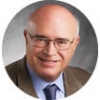
|
-
Dr. Gabor A. Somorjai
(U.S.A.)
Professor of Chemistry, the University of California, Berkeley, U.S.A.
-
Awarded for his establishing the methodology to visually describe surface interactions at the molecular level. His peers naturally began to hail him as the “father of modern surface chemistry”.
|
2010 |
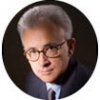
|
-
Dr. Antonio Damasio
(U.S.A.)
David Dornsife Professor of Neuroscience Director, Brain and Creativity Institute University of Southern California
-
Awarded for his pioneering efforts and remarkable contributions in the world of neuroscience symbolized with his influential Somatic Marker Hypothesis, by focusing on the roles of emotions and feelings in human behavior, including consciousness and decision-making.
|
2009 |
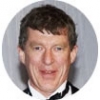
|
-
Dr. Ian Frazer
(Australia)
Director, Diamantina Institute for Cancer, Immunology and Metabolic Medicine The University of Queensland Princess Alexandra Hospital, Australia
-
Awarded for his achievement in developing world's first cervical cancer vaccines, which contributed to the preservation of the seed of the human race.
|
2007 |
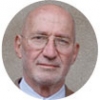
|
-
Dr. Philippe Mouret
(France)
M.D., General Surgery
-
Awarded for his achievements associated with the performance of the world-first practical laparoscopic cholecystectomy. He marked the beginning of rapid spread of endoscopic surgery and its related technologic innovations in modern medicine.
|
2006 |
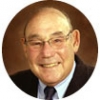
|
-
Dr. Richard R. Nelson
(U.S.A.)
George Blumenthal Professor of International and Public Affairs, Business, and Law, Emeritus, Columbia University
-
Awarded for his achievements associated with the Evolutionary Theory of Economic Change which views innovation as a key factor to substantially impact subsequent growth or deterioration of a given industry and economy as a whole.
|
2005 |
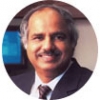
|
-
Dr. Raj Reddy
(U.S.A.)
Professor of Computer Science and Robotics Carnegie Mellon University
-
Awarded for his pioneering role in robotics and computer science which are expected to be used in the future society for a broad range of applications including education, medicine, healthcare, and disaster relief.
|
2004 |
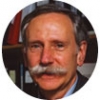
|
-
Dr. Walter C. Willett
(U.S.A.)
Professor of Epidemiology and Nutrition, Harvard School of Public Health
-
Awarded for his achievements associated with the widely-accepted finding as a result of his lifelong efforts in large-scale cohort study that diet has the key role in prevention of chronic diseases.
|
2003 |
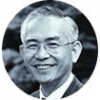
|
-
Dr. Ken-ichi Mori
(Japan)
Adviser to the Board of Toshiba Tec Corporation
-
Awarded for his achievements associated with the development of the first Japanese word processing engine. This processor was applied, and adopted as a basis, later for a number of multibyte languages.
|
2002 |
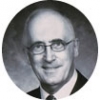
|
-
Dr. Barry John Cooper
(U.K.)
Vice-President of Johnson Matthey Inc. Catalytic Systems Div.
-
Awarded for his achievements associated with the development of the three-way catalyst, an environment-friendly device for exhaust gas treatment which substantially cleans emissions from automobiles.
|
2001 |
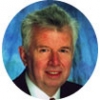
|
-
Dr. Donald Mackay
(Canada)
Professor, Trent University
-
Awarded for his achievements associated with the development of the Mackay Model, a method to measure environment pollution by predicting behaviors of chemical substances in the natural environment.
|
2000 |
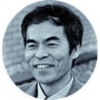
|
-
Dr. Shuji Nakamura
(Japan)
Professor, University of California, Santa Barbara
-
Awarded for his invention and development of the Blue LED, a power-saving diode with semipermanent life. An environmentally-benign diode, the Blue LED is substantially expanding LED applications in the real world.
|
1999 |
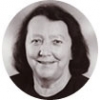
|
-
Dr. Aleksandra Kornhauser
(Slovenia)
Professor, University of Ljubljana and Director, International Center for Chemical Studies-ICCS
-
Awarded for her contribution to the implementation of environment-friendly product development / manufacturing processes through the use of an information system monitoring and helping control harmful industrial wastes.
|
1998 |
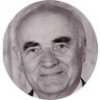
|
-
Dr. Hubert Curien
(France)
Professor of University Pierre et Marie Curie, Paris 6
-
Awarded for his leading role in the development of the first French earth observation satellite system, with which he improved the way to monitor and manage the earth environment.
|
1997 |
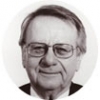
|
-
Dr. Günter E. Petzow
(Germany)
Director emeritus, the Max-Planck-Institute for Metals Research/Hon. Professor, University of Stuttgart
-
Awarded for his expertise in particle technology and powder metallurgy technique, which has led to commercialized fine-ceramic materials for use such as high-temperature turbine blade and prosthetic joint.
|
1996 |
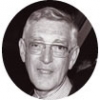
|
-
Dr. Bruce N. Ames
(U.S.A.)
Professor, University of California, Barkeley
-
Awarded for his development of the Ames test and associated efforts to legislate it. The Ames test is widely used to detect carcinogens as mutagens in the Salmonella/microsome test.
|
1995 |
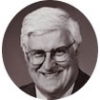
|
-
Dr. Åke E. Andersson
(Sweden)
Managing Director, Swedish Institute for Futures Studies
-
Awarded for his vision of C-Society where such C’s as Creativity, Culture, and Communication should become key elements that help regional or local economies grow in accordance with the environment.
|
1994 |
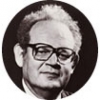
|
-
Dr. Benoit B. Mandelbrot
(France)
Professor, Yale University
-
Awarded for his lifelong work on the Fractal Geometry. Its implications have resulted in many forms of fusion between natural science and other areas such as social science and fine art.
|
1993 |
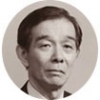
|
-
Dr. Koki Horikoshi
(Japan)
Professor, Toyo University
-
Awarded for his lifelong work on Alkaliphilic Micro-organisms, based on which he developed clean industrial technologies such as decontamination of polluted seawater.
|
1992 |
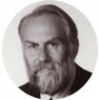
|
-
Dr. Hermann Haken
(Germany)
Professor, University of Stuttgart
-
Awarded for his initiation of Synergetics. He suggested this discipline could be one of basic principles to achieve equilibrium between ecosystem and human civilization such as politics, economy, technology and culture.
|
1991 |
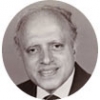
|
-
Dr. Monkombu S. Swaminathan
(India)
President, International Society for Mangrove Ecosystems
-
Awarded for his leading role in the Green Revolution movement that saved the Indian subcontinent from a serious food crisis, as part of his involvement in global activities for environment protection.
|
1990 |
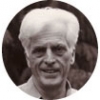
|
-
Dr. Frei Otto
(Germany)
Professor, University of Stuttgart
-
Awarded for his conceptualization and embodiment of light-weight architectural designs. He used his expertise in membrane structures to make the human environment more harmonious with nature.
|
1989 |
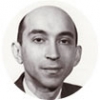
|
-
Dr. Lotfi Asker Zadeh
(U.S.A.)
Professor, University of California, Barkeley
-
Awarded for his construction of the Fuzzy Theory. He took an active role in making the future of information society a more humane civilization through a broad range of applications in he advocated.
|
1988 |
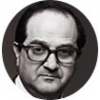
|
-
Prof. Paolo Maria Fasella
(Italy)
Professor, Commission of the European Communities
-
Awarded for his expertise in medicine, biology and other neighboring fields of life science. He vigorously engaged in the promotion of joint efforts in advanced technology toward a more harmonious development of human civilization, especially in the realm of science and technology.
|
1987 |
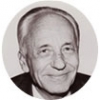
|
-
Dr. Jean Dausset
(France)
Professor, Collge de France
-
Awarded for his discovery of the major histocompatibility that opened a new way for organ transplantation complex. His longstanding educational roles, highlighted by the chair position in the Universal Movement of the Scientific Responsibility (MURS), are also quite substantial.
|
1986 |
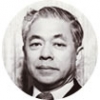
|
-
Dr. Jun-ichi Nishizawa
(Japan)
Professor, Tohoku University
-
Awarded for his achievements in the invention of pin diode and static induction transistor; and for his pioneering efforts in the application of optical communications technology to the society.
|
1985 |
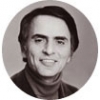
|
-
Dr. Carl E. Sagan
(U.S.A.)
Professor, Cornell University
-
Awarded for his visionary contributions associated with the introduction of a novel perception of human civilization by viewing the earth from a cosmic perspective, featuring the concept of ‘nuclear winter’ in caveat.
|
1984 |
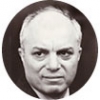
|
-
Dr. Umberto Colombo
(Italy)
Chairman, The Italian National Commission for Nuclear and Alternative Energy Sources
-
Awarded for his vision and policy recommendations in his book co-authored with the Club of Rome, ‘Beyond the Age of Waste,’ with regard to braking wasteful use of food, energy, and natural resources by developing sustainable technologies to secure them.
|
1983 |
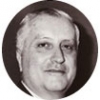
|
-
Dr. Ilya Prigogine
(Belgium)
Professor, Free University of Brussels
-
Awarded for his contributions to international fight against environment issues by applying his unique Dissipative Structure Theory primarily constructed in the fields of chemistry and physics.
|
1982 |
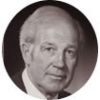
|
-
Prof. John F. Coales
(U.K.)
Professor Emeritus, University of Cambridge
-
Awarded for his achievements associated with the theorization of automatic control technology and its technological transfer to many of the developing countries. He has also exercised leadership in many international organizations to help merge different spheres of engineering practices and technology fields.
|
1981 |
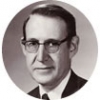
|
-
Dr. Harold Chestnut
(U.S.A.)
SWIIS Foundation, Inc
-
Awarded for his achievements associated with the promotion of humanitarian use of technology as a world leader in systems engineering that encompasses electrical, electronic, instrumentation, and automatic control.
|
1980 |
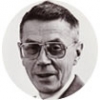
|
-
Dr. Gunnar Hambraeus
(Sweden)
Chairman, Royal Swedish Academy of Engineering Sciences
-
Awarded for his leadership in the promotion of interactions among engineering societies across continents as the managing director of Royal Swedish Academy of Engineering Sciences.
|






Honda Foundation
6F YANMAR TOKYO, 2-1-1 Yaesu, Chuo-ku,
Tokyo, 104-0028, Japan
Access
2 minutes’ walk from JR Lines at Tokyo Station
2 minutes’ walk from Subway Marunouchi Line at Tokyo Station
7 minutes’ walk from Subway Tozai Line,
Ginza Line and Toei Asakusa Line at Nihonbashi Station
7 minutes’ walk from Subway Ginza Line at Kyobashi station
MAP






















































